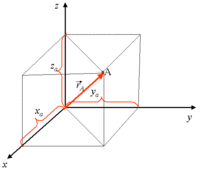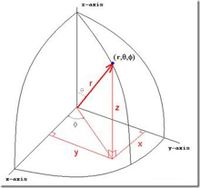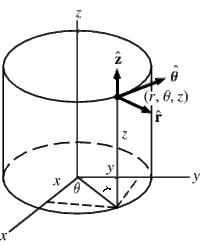Difference between revisions of "Forest UCM NLM"
Jump to navigation
Jump to search
(→Space) |
|||
| Line 20: | Line 20: | ||
[[File:TF_UCM_CartCoordSys.png| 200 px]] | [[File:TF_UCM_CartCoordSys.png| 200 px]] | ||
| + | |||
| + | Vector Notation convention: | ||
<math>\vec{r} = x \hat{i} + y \hat{j} + z \hat{k} = (x,y,z) = \sum_1^3 r_i \hat{e}_i</math> | <math>\vec{r} = x \hat{i} + y \hat{j} + z \hat{k} = (x,y,z) = \sum_1^3 r_i \hat{e}_i</math> | ||
Revision as of 18:21, 12 June 2014
Newton's Laws of Motion
Limits of Classical Mechanic
Classical Mechanics is the formulations of physics developed by Newton (1642-1727), Lagrange(1736-1813), and Hamilton(1805-1865).
It may be used to describe the motion of objects which are not moving at high speeds (0.1) nor are microscopically small ( ).
The laws are formulated in terms of space, time, mass, and force:
Space and Time
Space
Cartesian, Spherical, and Cylindrical coordinate systems are commonly used to describe three-dimensional space.
Cartesian
Vector Notation convention:


